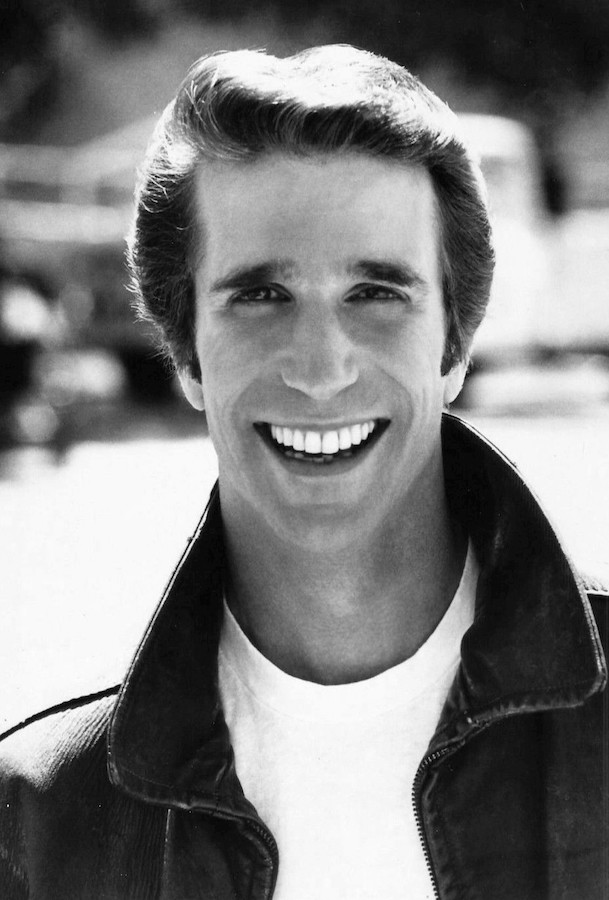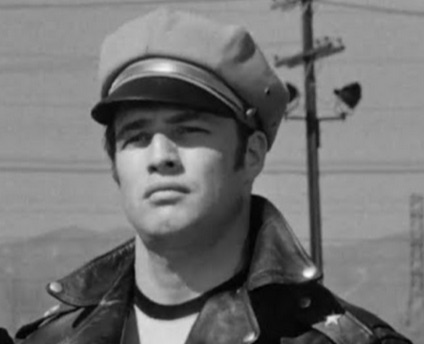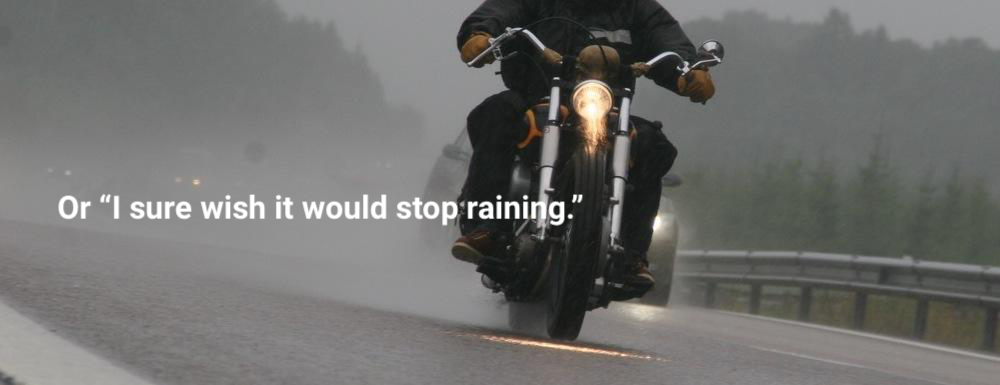Rebel with a (hopeless) Cause
The ancient Greeks had a useful story about a guy named Sisyphus, who forever strained pushing a large heavy ball up an inclined plane. In our time, the famous (but little-known in America) long-time (1960s-80s) president and CEO of the Toyota automobile company, Kiichiro Toyoda, lived, wrote, and spoke this Japanese aphorism: “To shoulder a heavy burden down a long road — such is life.” Across centuries of history, many wise people have presented this same idea in similar ways.
Not so long ago motorcyclists were generally regarded as rebels. That was mainstream thinking in America through much of the post-World War 2 era, when social conformity and broadly increasing prosperity were the order of the day. Suburban fathers would not allow their daughters to go out with motorcycle-bums and many motels and restaurants would not serve them. State and local police harassed them. Much of middle America was afraid of them. Hard to believe now, but true.
Back then many good motorcycle bums chose to ride simply because it felt great and was tremendous fun. Plus, it was affordable. Those riders knew riding was cool for many reasons; It was the perfect way to get from A to B enjoyably while also showing a little rebellion against the era’s dull social conformity, and also mildly rejecting the era’s rapidly expanding commercialized hype. Win. Win. Win.
As those years went by much of riding’s rebelliousness became co-opted, sanitized, and commercialized. By the early 1960s, all those small high-quality utility-transportation Hondas, and the many similar imported machines that had all become hugely popular across postwar Japan, became tremendously successful here as simple leisure toys, and then shortly after that in variations that were more specialized for performance, sports, and recreation. “You meet the nicest people on a Honda” was the ascendant commercial story, while on the traditional biker side, Marlon Brando’s scary rebellious “Wild One” cleaned up and morphed into Henry Winkler’s mega-popular “Fonzie”.


Meanwhile, year after year there came more better-quality cars and light trucks, moving along broader and straighter high-speed roads, with larger numbers of well-stocked retail stores, an increasing number of nice places to visit and eat out, and many additional ways to entertain ourselves. Everything was measurably becoming better and better. Earlier motorcycling expressions of rebellion faded and were replaced by new variations and forms of rebelling, most of which didn’t involve one’s chosen mode of transportation and/or recreation.
Today’s roads are filled with larger and taller slab-sided vehicles providing their occupants both with a better view and a more securely sealed and climate-controlled internal environment, so much so that even during perfect weather nearly all the openable windows on nearly all of these vehicles are nearly always fully closed. Primary control interfaces recognizably remain for steering, braking, and accelerating, but today interior ‘climate control’ and ‘infotainment’ systems are of seemingly equal importance. It’s not a stretch to imagine a future where the first three of these will become less important than the last two.
Long-time New York Times writer/opinion columnist Jamelle Bouie recently wrote about the sudden sharp increase in pedestrian and bicyclist deaths, under the title ‘The Path to Reducing Pedestrian Deaths Is Steep but Straight’. He correctly attributed the cause to today’s greater numbers of tall, slab-sided, climate-sealed, infotainment-maximized cars and light trucks. Duh.
That shift, more than anything else, is probably partly why street and touring motorcycling has been experiencing a decline across most of the advanced and rich parts of the world. Just as with walking and bicycling, moto-riding has become noticeably (and statistically) riskier, which translates to less urban and distance-traveling road riders, and more off-road sports and recreational riders. This is because at its essential core motorcycling will always be attractive in one form or another.
This is a lot like how domesticated horses transitioned from centuries of utility applications to becoming recreational pets because of the wide adoption and popularity of automobiles and motorcycles. There now are a greater number of horses in the latter role than the total number of them back when they were near-exclusively bought, sold, and kept (enslaved?) as functional work, military, and transportation tools.
A classic story from the near beginnings of automobility goes like this: It’s 1916. It’s pouring rain. The driver of a fully enclosed period car and the rider of a similarly period motorcycle each arrive at the exact same destination at the exact same moment. The driver looks at the soaking-wet rider and says unsympathetically: “I bet you wish you had a car!” The rider smiles back and replies: “No, but I wish it would stop raining!”
Russian writer Leo Tolstoy (1828-1910) wrote:
“One of the first conditions of happiness is that the link between Man and Nature shall not be broken.”
He was one of the greatest writers and thinkers in history.
Today’s wonderful high-tech, safe, comfortable, well-sealed cars and trucks have become pretty good at breaking this link.
Yuval Noah Harari (1976- ), a contemporary Israeli author, historian, and professor in: "21 Lessons for the 21st Century" | Talks at Google, said:
“The way we design technology can make us less compassionate.”
Today’s wonderful high-tech, safe, comfortable, well-sealed cars and trucks have perhaps unintentionally (?) been designed in ways that may be doing this.
Combine these two important ideas with the old “…bet you wish you had a car!” parable and it is something to think about. Now, add an idea from French philosopher, author, journalist, and political activist Albert Camus (1913-1960):
”What is a rebel? A man who says no.”
Ok, campers, for extra credit what would you call a utility transportation + commuting motorcycle rider today?
Or, for that matter, a transportationally-dedicated pedestrian or bicyclist?
- Mr. Subjective, Oct 2023
PS – “I don’t want a pickle; I just want to ride my mo-tor-sicle.” – Arlo Guthrie (1947 - ) American folk singer

No other manufacturer or retailer offers philosophy with bespoke designed motorcycle clothing.
Some may think it pretentious. If you agree I guess that makes me a t**t because I always think Mr Subjective’s blogs are “bang on”.
I've ridden, raced and competed off road in motocross, enduros, cross country, and trials events since the mid-70's, and have ridden on the street for just as long, and have lost count of the bikes I've owned.
When I first started commuting, I never worried about riding in traffic, but I do now.
I have made three trips to Alaska and back, twice crossing the Arctic Circle and once to Inuvik in the NWT. Not once did I encounter, or even worry about a distracted driver.
Nowadays, there are too many distracted morons piloting armored vehicles. Even the old farts like me, have a cell phone pressed to their ear with their eyes glazed over.
I purchased a brand new MotoGuzzi V85TT last March, with the goal of putting 4 or 5 thousand miles on it before winter, a lot of them from errand running, leaving my 23 year old diesel parked.
NOPE! To many idiots in slab mobiles. For my own protection, I drove my truck
Luckily, traffic is light enough mid-days where I live to access the road that gets me into the Colorado high country.
—
Sev Pearman
St. Paul, MN